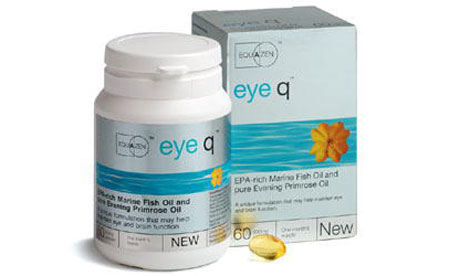
This week the food and nutrition pills industries are complaining. They like to make health claims about their products, which often turn out to be unsupported by the evidence. Regulating that mess would be tedious, the kind of project enjoyed by the EU. Enter Nutrition and Health Claims Regulation in 2006.
Since then member states have submitted thousands of health claims for manufacturers about cranberries, fish oil and every magical ingredient you can think of. This week it turned out that 900 have been examined so far, of which 80% have been rejected.
"The regulation is killing this industry and the job losses are already being felt," Ioannis Misopoulos, the head of the International Probiotics Association, told the BBC. Even "established claims like cranberry for urinary tract health" are being rejected, say pill company PowerHealth, adding: "There will be no information on packs for the consumer to assess what the product is supposed to do." SlimFast, that great British institution, may have to change its name, according to the same report. All complain that the bar for evidence is being set too high.
I decided to read some adjudications. These are available in full on the EU website. I can only apologise, but the first thing I typed in was fish oil. Picture this as a long-running pseudoscience soap opera – and they are the bestselling food supplement in the UK, in a global $55bn (£37bn) market.
Pharmaceuticals company Vifor Pharma wants to claim that Eye Q fish oil capsules improve working memory in children, and so sent in references to six studies (the deliberations are in full online). First, the fact that the company sent in six studies is interesting because Equazen, which manufactures Eye Q and is now owned by Vifor, told me in 2006 it had 20 positive studies showing that Eye Q improves school performance and behaviour in children, although it refused to let me see them, so there was no way to find out what they did, what they measured, who participated, or indeed anything at all about these studies. If ever there was a time to roll out those well-conducted trials, in which thousands of children volunteered their bodies for experiment, surely it was now, for the EU? Apparently not.
Two of the six studies were conducted in children with developmental co-ordination disorder and attention deficit hyperactivity disorder (ADHD). Whatever the value of these labels and the extent to which they are overused as diagnostic categories, these are not mainstream children and the results may not generalise, so it seems reasonable to take those with a pinch of salt.
Next, three of the six studies did not look at working memory. I hope it's not unfair to suggest they can be disregarded. Last, there is a positive result for one sub-type of working memory, verbal working memory, tested with digit span (how many numbers you can remember), from an unpublished trial of Eye Q. I don't know how many trials Equazen have today but, from a company with 20 hidden trials in which to hunt for an isolated positive result in one subscale from one variable, this does not feel like compelling evidence.
I don't think this is a regulator being unfair. What is unfair is taking these claims at face value. Companies want to make these claims to sell their products and will find a way – through journalists if need be, rather than labels. People want to buy these products: many of us enjoy pretending to ourselves that pills have proven medical effects, even though we kind of know the claims aren't for real.
PowerHealth says that if you stop it making claims, people will buy from companies abroad that can. They're right. In the field of addiction we use harm reduction strategies, like shooting galleries and prescribed opiates for heroin addicts, where the harmful effects of widespread vices that will never go away are at least contained. You'll never stop companies making these claims. You'll never stop people enjoying their claims. This game is at least 200 years old. The best solution I can see is an EU-mandated bullshit box, where people can say what they want about their product, consumers can join in, but the game is clearly labelled.

